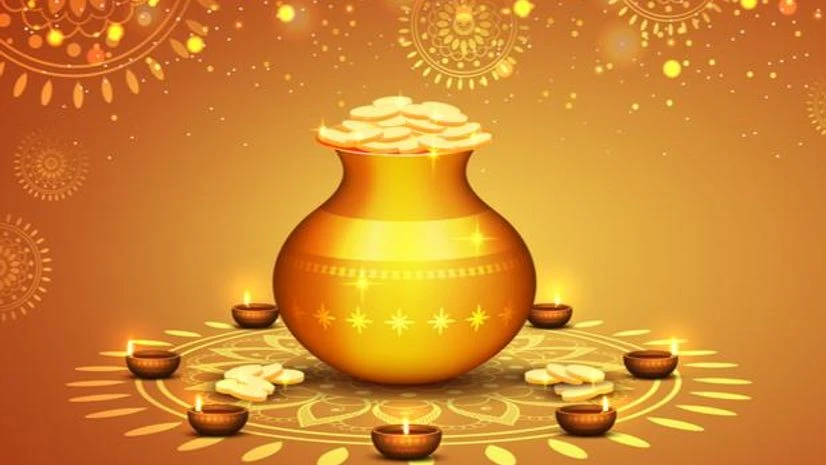This year, Dhanteras, the auspicious festival marking the beginning of Diwali, falls on Tuesday, October 29. Revered as a day to honour prosperity, health, and divine blessings, Dhanteras is celebrated with grandeur across India. This sacred day sees the worship of Lord Dhanvantari, the god of Ayurveda, and Goddess Lakshmi, the goddess of wealth. 'Dhan' symbolises wealth, and 'Teras' denotes the thirteenth day of Krishna Paksha (waning lunar phase). Traditionally, this day is considered highly auspicious for purchases, especially of gold, silver, and valuable items, as a means to welcome wealth and fortune into homes.
Significance of Dhanteras: Wealth, health, and prosperity
Dhanteras holds deep cultural and religious importance, as Hindus believe making substantial purchases on this day brings luck in matters of wealth and well-being. The festival is celebrated for multiple reasons rooted in mythology and tradition, each underscoring its spiritual and symbolic value:
1. Worship of Lord Dhanvantari: The God of health and Ayurveda, Lord Dhanvantari is revered on Dhanteras. According to Hindu mythology, during the churning of the ocean of milk (Samudra Manthan), he emerged with a pot of amrit (nectar of immortality), symbolising eternal health and life.
2. Arrival of Goddess Lakshmi: The day is celebrated as the arrival of Goddess Lakshmi, who blesses her devotees with prosperity and fortune. Her presence is believed to purify homes and attract wealth, making Dhanteras an ideal day for buying valuable items as offerings.
3. Auspicious beginnings: Dhanteras marks the official beginning of Diwali celebrations and is considered a propitious time for new beginnings, investments, and purchases. It sets a positive tone for the entire Diwali season.
4. Honouring wealth and prosperity: The festival is also associated with Lord Kubera, the God of wealth, who represents material abundance. Dhanteras is an opportunity to honour the wealth that sustains life, fostering gratitude for prosperity.
More From This Section
5. Purification and cleansing: Many households engage in cleansing rituals on this day, believing that purification invites positive energy. Homes are scrubbed and decorated, symbolic of clearing away negativity and preparing for Diwali’s illumination and joy.
The history and legends behind Dhanteras
The story of Samudra Manthan
Dhanteras, also known as Dhanatrayodashi, is steeped in mythical lore. According to the ancient story of the Samudra Manthan, the devas (gods) and asuras (demons) churned the ocean to extract amrit. From the depths emerged Lord Dhanvantari, carrying a pot of nectar, symbolising health and the well-being of humankind. Alongside him, Goddess Lakshmi and Lord Kubera surfaced, representing prosperity and wealth. To honour these deities, devotees across India observe Dhanteras with reverence, inviting blessings of both health and prosperity.
The legend of King Hima’s son
Another popular tale behind Dhanteras is the legend of King Hima’s son. According to folklore, a young prince was prophesied to die from a snakebite on the fourth day of his marriage. His newlywed wife, determined to save him, devised a clever plan. She piled heaps of gold and silver coins and illuminated their chamber with countless lamps, creating a radiant glow. She kept her husband awake through the night by narrating stories and singing songs, hoping to protect him.
When Yama, the god of death, arrived disguised as a serpent, he was blinded by the brilliant display of light and wealth. Unable to enter the room, Yama sat atop the coin heaps, mesmerised by the bride’s enchanting voice and tales. As dawn broke, Yama retreated, sparing the prince's life. This story signifies the triumph of life and love over death, and to this day, devotees light lamps and display their precious metals to ward off negativity.

)